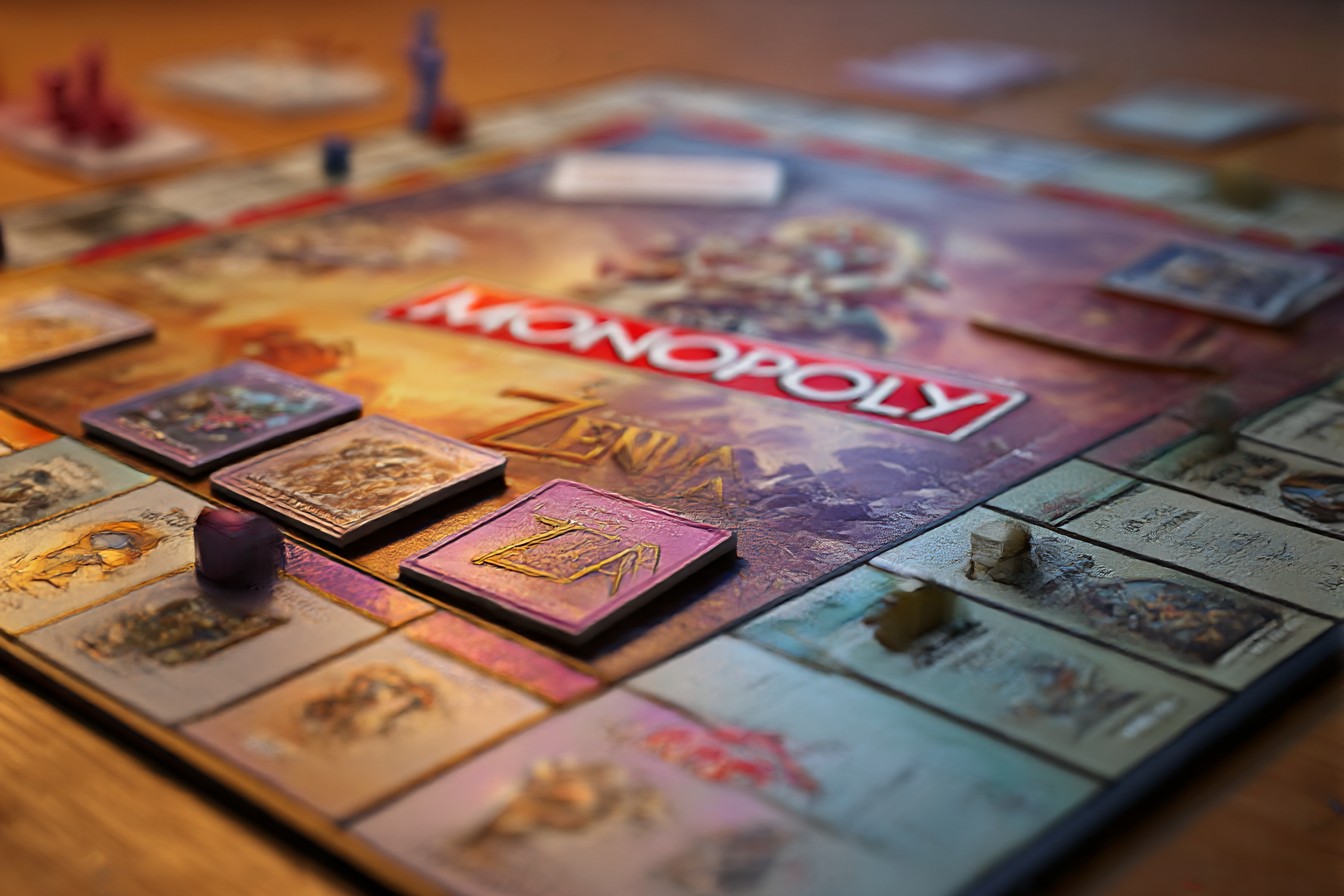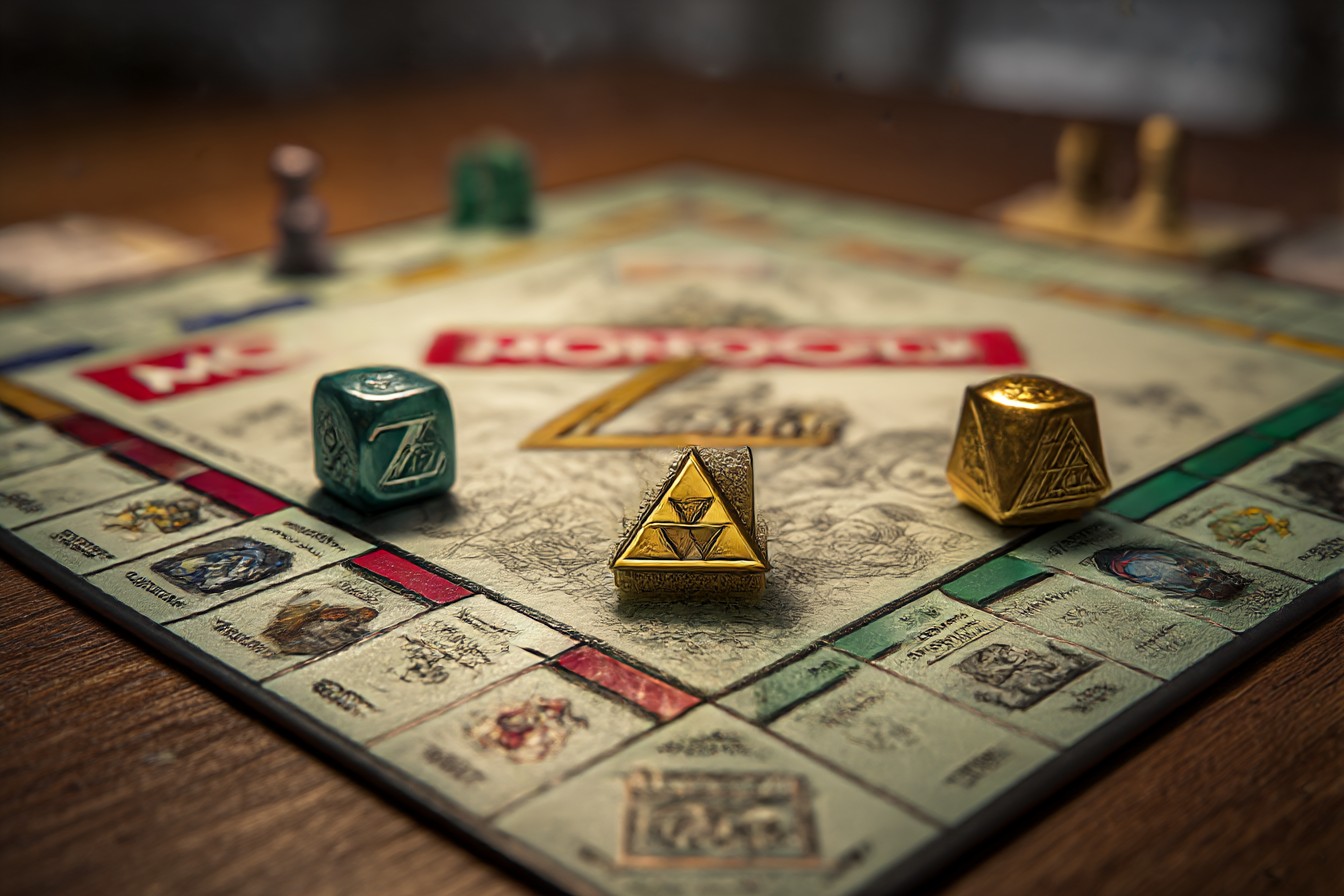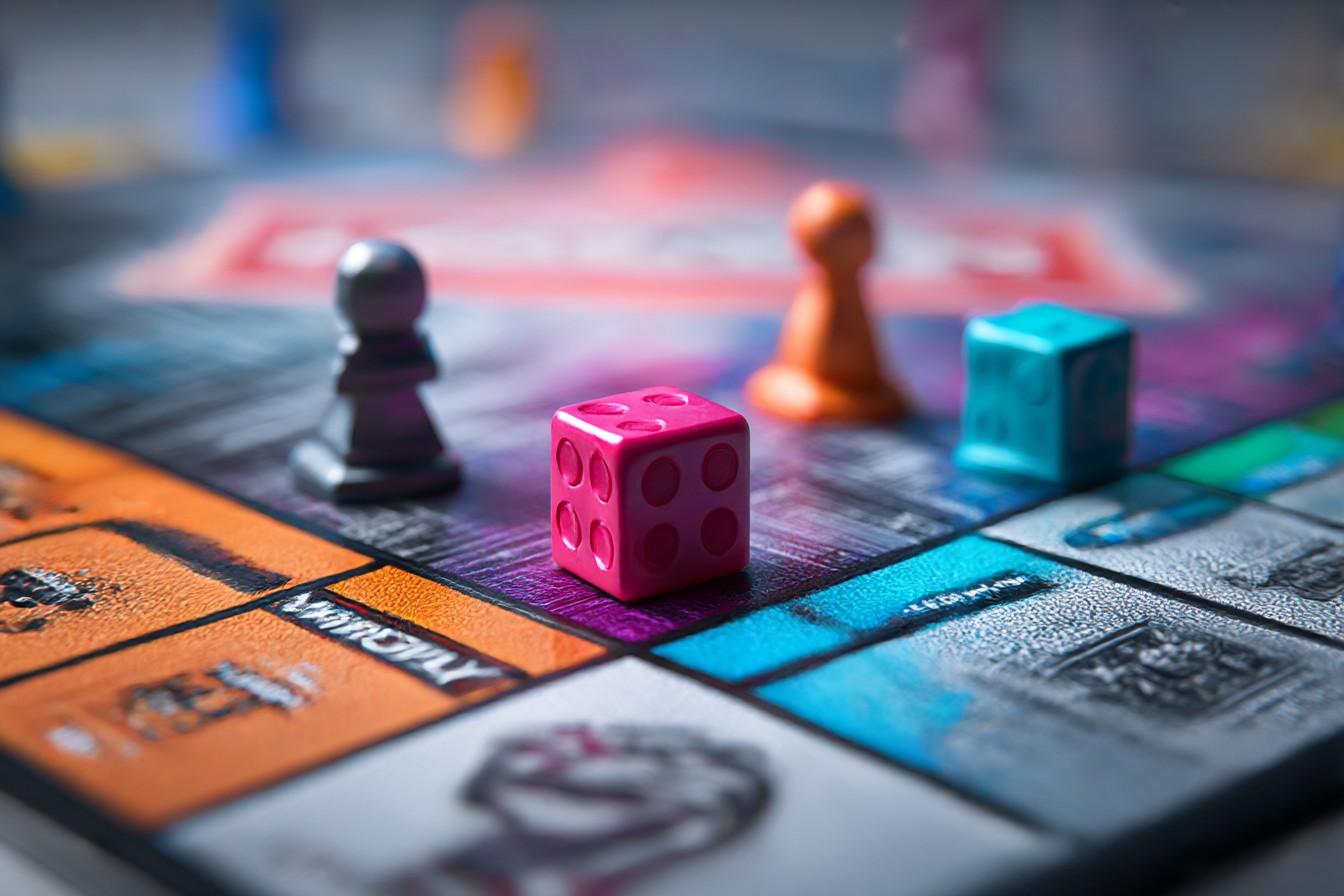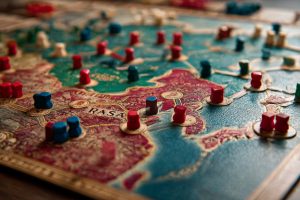You know what’s embarrassing? I spent the first two years of seeing Monopoly Gamer Edition on shelves thinking it was just Nintendo cashing in on nostalgia. Like, seriously – another themed version of Monopoly? My local game store had it right there next to all the other licensed cash grabs, and I’d walk right past it to grab something with actual mechanical innovation. Man, was I completely wrong about that one.
The wake-up call came last Christmas when my gaming group decided to do a “bad games night” – you know, where you intentionally play terrible games for laughs. Someone brought Monopoly Gamer thinking it would be hilariously awful. Three hours later, we were having legitimate strategic discussions about power-up timing and character synergies. That’s when I realized this wasn’t Monopoly at all… it just happened to use the same board.
See, here’s what I missed initially: the power-up system completely transforms the fundamental game structure. You’re still moving around a board collecting properties, sure, but now you’ve got these tactical decisions happening every single turn. Each character has unique abilities, plus there are these power-up cubes you collect that let you trigger special effects when you need them most. It’s like someone took the basic Monopoly framework and built an actual strategy game on top of it.
The biggest newbie trap I see is players treating power-ups like bonus points instead of core mechanics. They’ll save their cubes forever waiting for some perfect moment, or they’ll burn through them randomly in the first few rounds. I made exactly this mistake that first game – hoarding my resources while other players were actively using theirs to control board position and timing. My friend Dave, who usually struggles with heavier strategy games, completely destroyed me because he understood something I was missing.
Power-up timing isn’t just important, it’s everything. This is where the game separates itself from traditional Monopoly’s “roll dice and pray” gameplay. You have genuine moment-to-moment decisions that can swing entire game states. The trick is learning which situations actually justify spending your limited cubes versus when you should hold back and wait.

Take Mario’s Super Star ability – it lets you steal coins from other players when you pass them. Most people activate this randomly, but the real value comes from timing it right before you’ll be making multiple trips around the board. If you’re planning a property buying spree or you’re in a crowded section, that’s when Super Star becomes absolutely devastating. I watched someone use it perfectly once, activating right before a series of moves that let them drain like half the coins from the other players.
After probably sixty or seventy games now (yeah, I got a bit obsessed), I’ve started thinking about what I call “cube economy.” The players who consistently win treat their power-ups like investments that need maximum return, not just random bonuses to use whenever. They’re thinking three turns ahead, looking for optimal timing windows where a single cube can create multiple benefits.
Character selection is way more important than it appears too. I see people at game night just picking their favorite Nintendo character or whoever looks coolest. That’s fine if you’re playing casually with kids, but if you want to actually develop skill at this game, you need to understand what each character brings strategically.
Yoshi’s Flutter Jump is probably the most underrated ability in the game. Being able to choose your exact movement distance gives you surgical precision for landing on specific spaces, avoiding dangerous properties, or positioning yourself perfectly for power-up combos. Meanwhile, something flashy like Bowser’s Shell seems powerful but needs careful setup to be truly effective.
The property strategy is completely different from regular Monopoly too. Games are shorter, there are multiple scoring paths, and you can’t just build hotel monopolies and wait for people to go bankrupt. The boss battles add this whole competitive element where you’re fighting for points rather than just trying to destroy your opponents financially.
Here’s something most people miss: the real power comes from combining character abilities with power-up cubes at exactly the right moments. I had this game as Luigi where I’d been saving Super Mushrooms instead of using them for random movement. Then I used four in one turn to make this massive board loop that hit two boss battles, triggered my character ability multiple times, and collected coins from everyone else’s properties. It was this beautiful mechanical symphony that only worked because I’d planned it out.
Boss battles require completely different thinking too. You’re not avoiding these encounters like negative events in other games – they’re opportunities. The rewards for winning are significant, but here’s the thing: sometimes it’s strategically correct to intentionally lose a boss battle if it prevents another player from getting those rewards, especially late in the game when points are tight.
I’ve noticed players get tunnel vision on their own abilities and completely ignore what opponents are setting up. If someone’s been quietly collecting Fire Flowers and they’re approaching your property cluster, that should trigger defensive thinking. Maybe use a power-up to reposition, or activate something that disrupts their plan entirely.
The coin economy flows way more dynamically than people expect. Unlike traditional Monopoly money that just accumulates, coins are constantly moving through different systems. You’re spending them on properties, gaining them from various sources, using them to buy more power-up cubes. The winners keep their coins productive rather than just hoarding them.

One pattern I keep seeing is newer players underestimating how quickly games end. They play like they have unlimited time to execute some long-term strategy, but the point-based victory conditions mean games wrap up much faster than traditional Monopoly. This creates interesting tension where you need early aggression while maintaining endgame flexibility.
The power-up cube market adds another decision layer that took me several games to really appreciate. Which cubes to buy when, how many to stockpile versus use immediately, whether to diversify your cube portfolio or focus on specific synergies. These micro-decisions compound throughout the game in ways that aren’t immediately obvious.
What I love most after all this time is that Monopoly Gamer rewards both tactical execution and strategic planning. You need to understand your character’s strengths, manage resources effectively, time power-ups correctly, and adapt to opponents’ strategies. It’s not about rolling dice and hoping anymore – there are actual meaningful decisions happening constantly.
The game taught me something important about power-up mechanics in general: they work best when they create interesting choices rather than just random bonuses. Every power-up activation involves decisions about timing, opportunity cost, and risk assessment. That’s what makes this genuinely strategic instead of just flashy window dressing on an old formula.
Thomas lives in Seattle and treats board games like elegant puzzles. He dives into mechanisms, balance, and why certain designs just click. His writing is thoughtful, detailed, and perfect for players chasing that next strategic masterpiece.


Leave a Reply